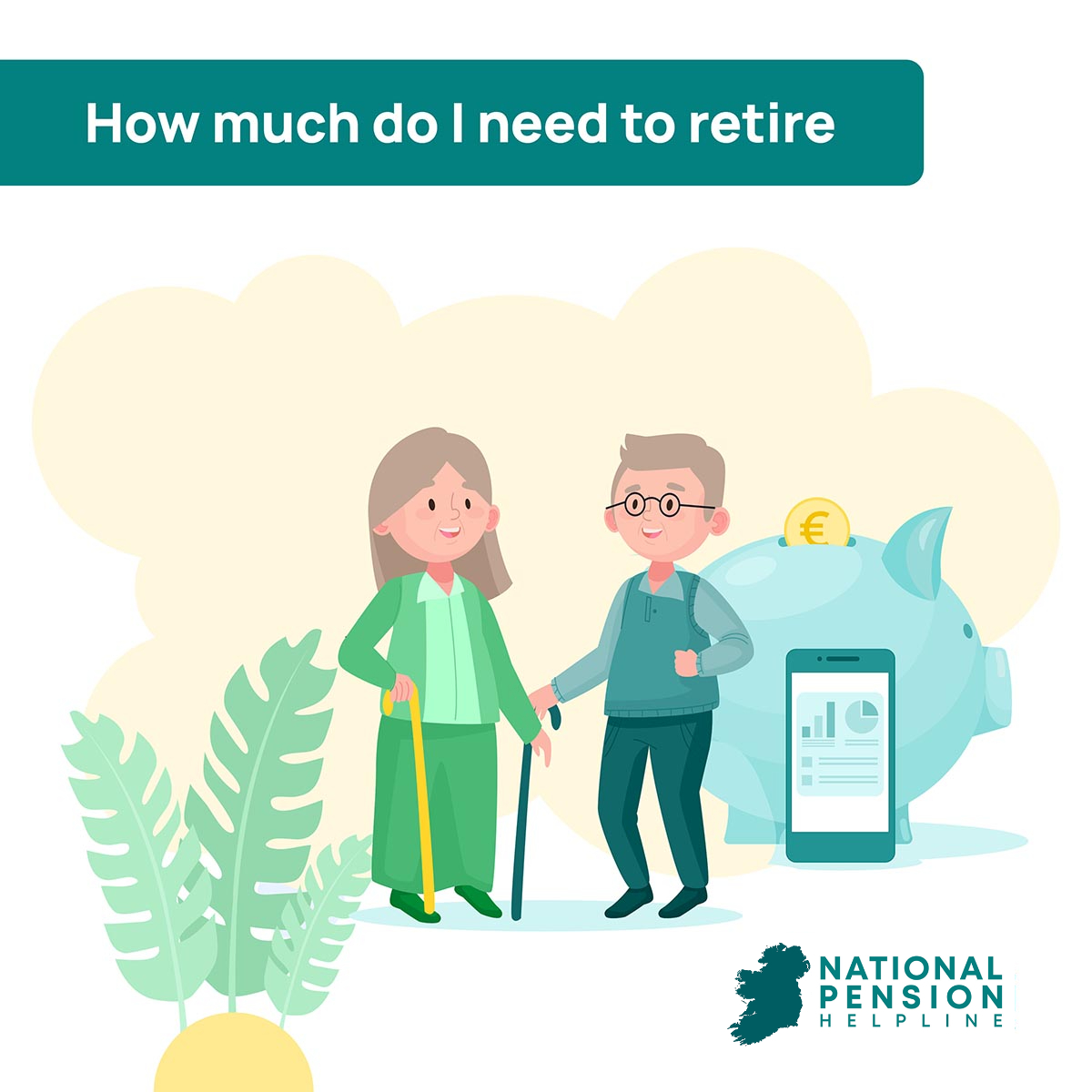When you imagine retirement, you may see yourself enjoying your hobbies, enjoying the sunny beaches of southern Europe, or simply spending more quality time with your family.
Whatever your vision for the future, it’s crucial that you plan for it. And one of the key things to consider is how much of a pension you will need to retire.
Retirement Planning
To plan for retirement, you will need to factor in your desired lifestyle and income, your current pension, expenses, dependent children, and whether you are contributing enough to achieve your goals.
You may even want to begin to evaluate different outcomes, for example, what a more ‘modest’ retirement would look like compared to a ‘comfortable’ retirement.
The first step that you should take towards living the life you deserve when you retire is to review your current pension, to ensure that it is performing as well as you hope.
What is a comfortable pension for retirement in Ireland?
It has been reported that a pension of €33,600 per year is needed for a “comfortable” retirement in Ireland for a single person.
Pension savers are often told to aim for 40% to 50% of their current salary in retirement, as a rule of thumb. However, you should first do some calculations and estimate your desired income.
Calculate How Much you Need to Retire in Ireland
It is crucial to calculate how much you’ll need to retire in Ireland. The first step is to find out how much you will need to withdraw each year. Our free pension calculator allows you to estimate how much you should be contributing to achieve your desired retirement income.
You should take into account both your private pension and the state pension, if you qualify, in these calculations.
Is the state pension enough to live off?
The standard state pension in Ireland is €15,560 per year (€299.30 per week) which for most people is inadequate to enjoy a comfortable lifestyle.
This payment is made to retirees based on the PRSI payments they’ve through their working life and is a set amount designed to cover a basic cost of living.
You’ll likely need much more than the state pension alone to maintain your standard of living, particularly if you plan to be active in retirement and enjoy these more leisure-focused years.
Retirement Expenditure
Estimating your retirement expenditure can be tricky, especially if you are many years from retirement age.
But you should begin to think about your expenses, whether you will have your mortgage paid off and whether you expect your children to have left home.
Many retirees will have already paid off their mortgage and their children will have fled the nest when they hang up their boots, but this is not the case for everyone. If these expenses are expected to continue into retirement, you’ll need to plan accordingly so as to have enough to live off after paying your bills.
You should also remember you will need to spread your pension pot over the duration of your retirement.
The 4% Pension Rule
It is often recommended that you withdraw only 4% of your pension pot in any given year. This means that even in a scenario where your pension pot sees very limited growth, after 20 years you will have a fifth of your pot remaining.
This strategy is based on a 30-year retirement horizon, and should be followed with an investment strategy which focuses on capital maintenance and some growth, which will hopefully mean that you’ll see returns that keep pace with inflation.
A carefully managed ‘4% pension rule’ approach should allow for sufficient funds to see you through retirement.
Common Pension Mistakes to Avoid
There are a number of common pension mistakes that you should avoid as these could jeopardise your future income.
How much do you need to retire early in Ireland?
To retire early in Ireland you will need a substantially larger pension pot than if you work until your mid-60s. This is because your savings must last longer, and you will need to wait until you are 66 to receive the state pension.
The amount you need to retire early will depend on your lifestyle, expenditure, and if you also plan to work part-time. Many early retirees in Ireland aim for an income of between €30,000 and €40,000 per year for a modest or comfortable lifestyle, however this can vary significantly.
How much do I need to retire at 60?
Retiring at 60 means that you will have to have enough to keep you going until you start to receive the state pension at 66.
For those who wish to withdraw €35,000 per year, you might need around €140,000 in your pension pot to cover those first six years alone. But remember, the state pension will not be enough for most people to enjoy a comfortable retirement, so this figure will need to be substantially higher.
How much do I need to retire at 50?
Retiring at 50 requires a significant pension pot. It may be possible to withdraw a tax-free lump sum at 50, but you must be aware of the consequences of doing so. If you live until you’re 90, you will need enough money to cover around 40 years of living expenses.
Using the 4% rule as a rough guide and €35,000 as your desired annual income, your pension pot would have to be in excess of €1 million.
You must also take into consideration that you won’t receive the State Pension for at least 16 years, and unexpected expenses can arise. Healthcare costs and inflation can also play larger roles if you decide to retire at 50.
Factors to Consider Before Early Retirement
As well as how much you will need to have in retirement savings if you plan to bow out early, there are other factors to consider such as your expected expenditure, rising inflation, and whether you have started your pension too late.
How to Maximise your Pension Late in Your Career
Whether you began investing in a pension in your 20s or 30s or you started later, there are some strategies you can take to maximise returns later in your career, such as investing in higher growth funds, taking advantage of tax relief and increasing contributions.
Comfortable Retirement FAQs


